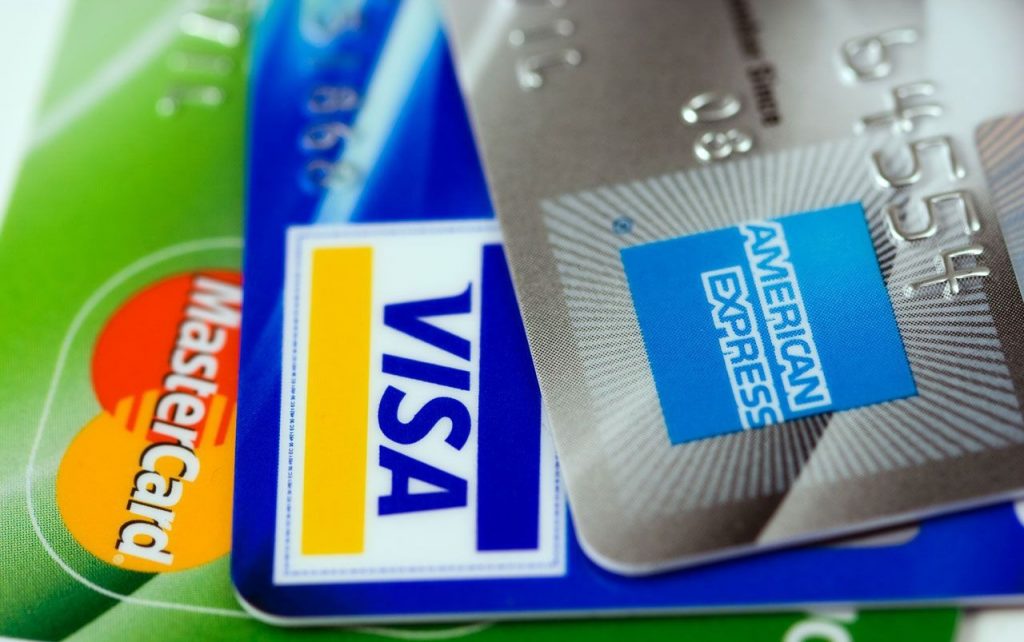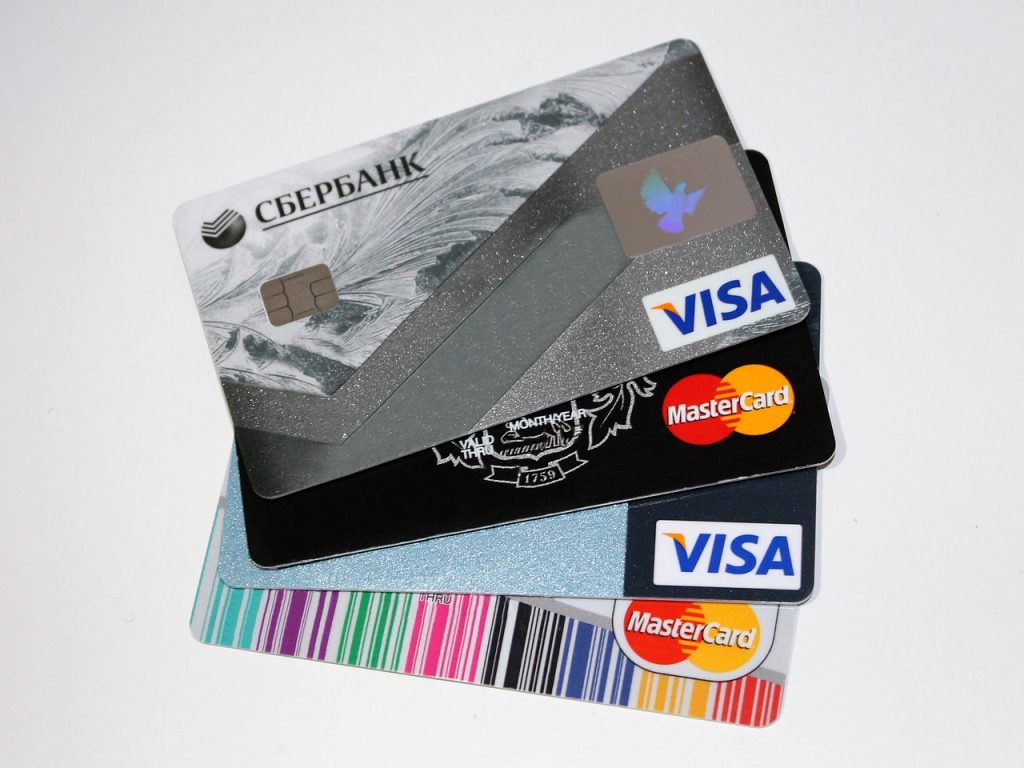Credit card payment processing gateways are connection points where a customer’s credit card payment is linked with a shopping cart, terminal to the next virtual point, or point of sale (POS) system.
Credit card payment processing gateways can link businesses to payment processors, debit/credit card networks, and the customer’s issuing bank. These gateways can be online or in-store.
If your business is interested in utilizing a credit card payment processing gateway, there is plenty of information that you must know.
The Role Of Credit Card Payment Processing Gateways
Payment processors relay payment details between a customer and the customer’s bank. While payment processors come with the necessary equipment, credit card payment processing gateways are virtual versions of POS terminals.
The primary difference between credit card payment processing gateways and payment processing gateways is that credit card gateways send credit card details to payment processors as well as transmit credit card details to payment processors.
Additionally, payment processors communicate the credit card issuer’s decision to approve or reject the payment to both the business and the purchaser.
If your business has begun having people ask about credit card payments, it’s time to think about the role a credit card payment processing gateway might play for your operation.

Advice on Locating The Best Possible Credit Card Payment Processing Gateway
Locating the best possible credit card payment processing gateway is never easy. For starters, the operation of payment gateways is challenging. Even if a business knows what a credit card payment processing gateway does, its owner or operators will likely have questions about what the gateway does.
Second, finding a credit card processing payment gateway is difficult because it is hard to understand the mechanics of different companies.
Some frequently recommended credit card payment processing gateways include:
- Authorize.net. The most popular payment gateway, Authorize.net is owned by Visa, a recognized leader in fraud protection. Authorize.net is one of the most friendly gateways available and integrates with more shopping carts than other secure payment gateways.
- eProcessingNetwork. This gateway has various advanced features, which include email invoices and an Authorize.net simulator. This affordable option and Authorize.net substitute is also a choice worth considering.
- NMI/Network Merchants Inc. This is another popular gateway, partially because it offers a client a load-balancing option. Merchants can load multiple merchant accounts or merchant identification (MID) numbers into the NMI backend and gateways automatically relay these transactions among merchant accounts.
The Advantages of Credit Card Payment Gateways
Credit card payment gateways offer various benefits to sellers, which include affordability, simplicity, flexibility in connecting to a payment processor of the business’s choice, and security.
Understandably, security is a top priority for many businesses, and credit card payment gateways are a great way to protect your customer’s confidential data from hackers.
Credit card payment processing gateways include various security features including encryption, which help to make sure that customer funds remain safe.

Important Definitions With A Credit Card Payment Processing Gateway
Some of the most important definitions that businesses should understand about their credit card payment processing gateway include:
- Card scheme. Visa, MasterCard, American Express, and Discover are some of the largest card schemes in the world. Sometimes, card schemes are called card brands or card networks. MasterCard and Visa are open networks that actively encourage banks to issue their cards to purchasers as well as accept card transactions. No direct relationship exists between cardholders and card schemes. Issuing and acquiring banks must follow operating regulations established by card networks. If acquiring banks (which make sure that merchants receive the money that customers have paid) violate these laws, acquirers also pass on the resulting fines to merchants. Card schemes collect the fees from acquirers, who are later reimbursed by merchants. American Express, however, is a closed network that acts as the card acquirer and issuer and has a direct connection with consumers and merchants. Meanwhile, Discover is a hybrid model that issues cards directly to consumers, but lets banks perform as acquirers to directly settle with merchants.
- Local card schemes. Many countries have local card schemes, which are preferred by consumers in that area. For example, India has RuPay, a unique global card payment network.
- Issuing bank. Issuing banks issue credit cards to purchasers on a card network’s behalf. Issuing banks front the funds to merchant accounts when a person pays with a credit card, which carries a degree of risk. If a cardholder defaults then the issuing bank takes a percentage of the consequences. Avoiding the fallout from things like defaults, issuing banks charge a fee for each transaction.
- Acquiring bank. Acquiring banks place funds from purchases made using a credit card into a merchant’s account. Acquiring (or “merchant”) banks manage and underwrite the merchant account that lets merchants accept credit or debit cards. Banks carry the same risk as issuing lines of credit and are ultimately responsible for consumer disputes if a sponsored merchant ends up going out of business or filing for bankruptcy.
- Payment processors. Both acquiring and issuing banks do not have sufficient infrastructure to directly connect to payment networks. Third-party payment processors connect merchants and financial institutions to authorize transactions and facilitate fund transfers.
- Payment service provider (PSP). These providers work with both acquiring banks and merchants throughout the payment process. Many PSPs have their own credit card payment processing gateways. By offering merchants software and application programming interface (API) to efficiently manage payments, merchants improve the customer payment process. Some reasons why businesses work with PSPs include increased security, transaction data, and currency processing.
How the Credit Card Payment Process Works
In short, the card scheme relays card transaction data from acquiring to issuing banks and then moves the payment to the acquirer to confirm payment.
A more detailed process of the steps involved with a credit card payment processing gateway includes:
- Credit card payment authorization. Authorizations involve either accepting or denying a credit card holder’s payment. Cardholder data is moved from acquiring banks/processors for routing through card networks to a cardholder’s issuing bank before approval or denial is finally granted. The final decision occurs after the necessary checks have occurred, which include validating the transaction data, ensuring the cardholder has sufficient funds to make a purchase, and that the account is in good standing. The response is then sent back and stored in advance of settlement. How long authorization takes depends greatly on the issuing bank’s policy regarding credit cards.
- Capture requests. When merchants are interested in initiating a collection on payment for goods or services, a capture is performed in real-time. During a capture, authorization occurs or sometimes merchants do this later after shipping a product. In one day/night operation of the business, capture requests are relayed to a gateway, held, then submitted to an acquiring processor in one beach. Many businesses do batches late at night.
- Settlement. During this process, funds are moved from the Automated Clearing House (ACH) to the issuing to acquiring bank.
- Funding. In this final stage, merchants relay payment into their bank account with another funding request through ACH from the acquiring bank to the merchant bank. If the merchant’s deposit account is situated at the same bank as their merchant account, next-day funding is often an option.

The Importance of A Credit Card Payment Processing Gateway And PCI
Every business that accepts credit card payments must follow payment card industry (PCI) regulations. Many factors end up shaping what businesses must follow to meet PCI standards. Merchants receive a PCI level based on the transaction volume (amount of business) that the merchant sells.
Additionally, merchants are required to complete questionnaires based on the degree to which they are involved with the handling, processing, and storing of cardholder information. This is why hosted checkouts are so valuable. If a business does not touch, process, or store credit card information, the business’s required PCI compliance is substantially lowered. Assessment changes based on whether a business stores or processes cardholder information.
Credit Card Payment Processing Gateway and Associated Fees
Merchants pay various parties for services performed during payment processing. Some of the costs that merchants should expect to pay include:
- Issuers receive payment through a percentage of each sale (an “interchange”). The amount of an interchange varies noticeably based on several factors including industry, sales amount, and what kind of card was used.
- Merchant banks charge markup fees, which also vary based on industry, the sale’s amount, the monthly processing volume, and other factors.
- The credit card association charges a fee (an “assessment”).
- Payment processors charge a fee for processing every transaction along with setup fees, monthly usage, and the cancellation of accounts.
Besides transaction fees, businesses should also anticipate fees associated with setting up, hardware, and monthly subscriptions. These additional charges are more routine with traditional merchant accounts. PSPs, however, do not include these cases or waive costs as part of the PSP’s promotional offer.

The Cost Of Credit Card Payment Processing
Along with wanting to know what kind of fees often accompany credit card payments, businesses are also often curious about how much they should expect to pay for offering this new payment method.
Reuters analysts have found that the average processing fee ranges between 1.5% to 3.5%. PSPs are often advantageous because they charge a flat rate, while merchant account fees can vary greatly between transactions.
Discover How We Can Help With Your Credit Card Payment Processing Gateway
Bankful has helped many businesses with credit card payment processing gateway solutions. Merchants often discover that with our services they can grow their company globally by offering the appropriate payment methods coupled with strong integration. Contact us today to learn more about how we can help.

